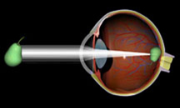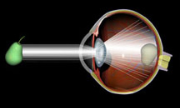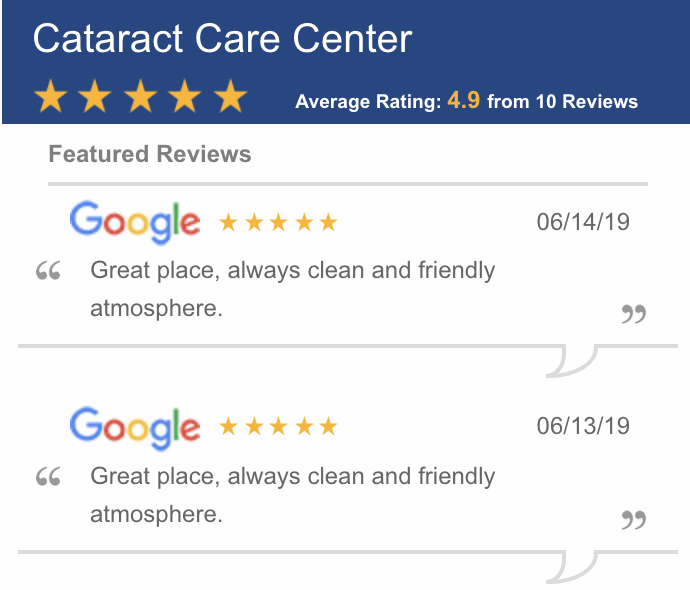Cataract Surgery
Can a cataract be treated?
Yes. Each month, we successfully treat many cataracts by painlessly removing the clouded lens and
replacing it with an artificial lens to restore vision. The procedure usually takes less than 15
minutes, and is done on a same day basis.
The cataract removal method and lenses we use at the Cataract Care Center were designed by Dr.
Kearney to allow for fast recovery, enabling his patients to return immediately to their normal
activities while giving them the best possible vision.
It is our aim to provide you with good vision without glasses. The best vision possible without
glasses is when we implant your eye with a multifocal or focusing intraocular lens. Unfortunately,
most insurance companies do not cover the entire cost of these lenses and there is usually a balance
due from the patient. When using the insurance covered “Standard Intraocular Lens” we aim for the
nondominant to see best at near and the dominant eye in the distance. This is called, ”Blended
Vision”, and most people see well enough to read a menu or recipe and pass their driver’s license
without glasses. If you have astigmatism we treat that at the same time with a “Limbal Relaxation
Incision” at no extra charge, avoiding an expensive intraocular lens.
A pioneer in his field, Dr. Kearney has developed lens implants for treatment of cataracts which has
restored the vision for countless people. Chances are that he can restore your vision too. If you
have a cataract that’s begun to interfere with your work and normal activities, now is the time to
contact us for an evaluation.

Eye with normal vision

Eye with cataract
What are the Symptoms?
- A blurring or dimming of your vision
- Decreased contrast— washed out
- Print you once could read easily now seems difficult to see
- Glare or halos may appear around bright lights, and night driving becomes more difficult.
- Feeling of film over eyes and increased blinking
- The color of your pupil is changing from normal black to a milky gray, then to yellow or white.
Contrary to what many believe, a cataract is not a film over the eye, nor is it a growth, tumor,
infection or contagious disease. A Cataract is simply the clouding of the lens inside the eye which
blocks light, and causes your vision to become hazy or blurred.
For older individuals, a cataract is most often a part of the aging process. For younger
individuals, a cataract can be the result of an injury, or certain diseases and medications. No
matter what the reason for its development, almost all cataracts can be treated, so whether or not
they stay is up to you.
